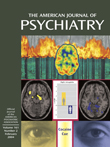Psychobiological Mechanisms of Resilience and Vulnerability: Implications for Successful Adaptation to Extreme Stress
Abstract
OBJECTIVE: Most research on the effects of severe psychological stress has focused on stress-related psychopathology. Here, the author develops psychobiological models of resilience to extreme stress. METHOD: An integrative model of resilience and vulnerability that encompasses the neurochemical response patterns to acute stress and the neural mechanisms mediating reward, fear conditioning and extinction, and social behavior is proposed. RESULTS: Eleven possible neurochemical, neuropeptide, and hormonal mediators of the psychobiological response to extreme stress were identified and related to resilience or vulnerability. The neural mechanisms of reward and motivation (hedonia, optimism, and learned helpfulness), fear responsiveness (effective behaviors despite fear), and adaptive social behavior (altruism, bonding, and teamwork) were found to be relevant to the character traits associated with resilience. CONCLUSIONS: The opportunity now exists to bring to bear the full power of advances in our understanding of the neurobiological basis of behavior to facilitate the discoveries needed to predict, prevent, and treat stress-related psychopathology.



